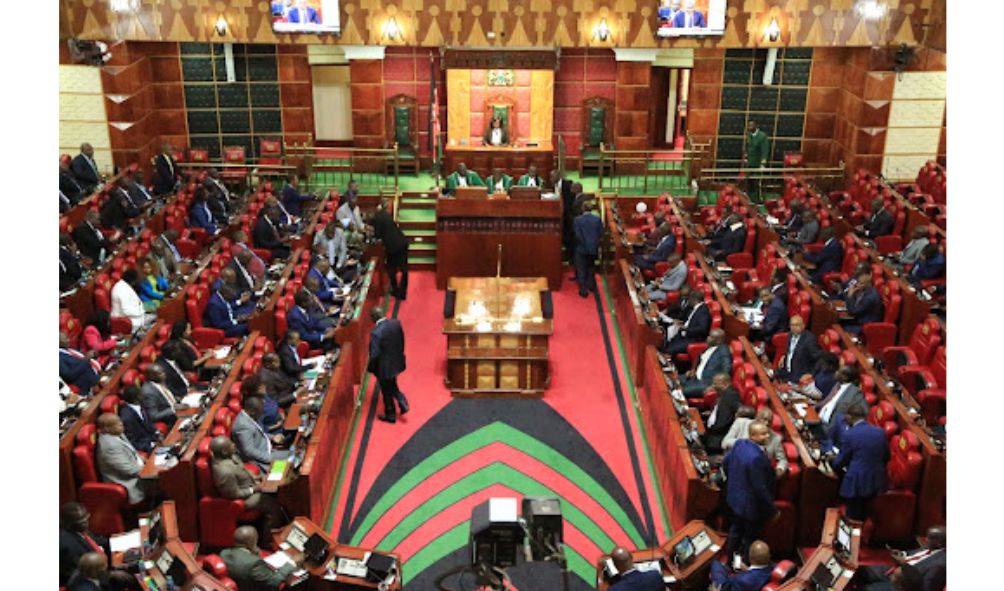Senate Retains Ksh20M Fine, 10-Year Jail Sentence for Misappropriating Housing Levy Funds
As Kenya braces for the implementation of the Affordable Housing Bill 2023, concerns have been raised regarding the potential for corruption seeping into President William Ruto’s flagship project.
In an interview on Citizen TV, on Tuesday, March 19, Dagoretti North MP, Beatrice Elachi expressed fear of misappropriation of funds within county governments and national government.
She said, “The housing program is the largest collection of revenue for the government and if we are not careful about it in terms of corruption, we will later come to scream why we brought it.”
The project is targeting to construct 200,000 affordable housing units annually and has promised to create between 600,000 and 1 million jobs each year.
In a bid to actualize this, the National Assembly has appropriated and ring-fenced Ksh73 billion in the current financial year’s budget towards the project that seeks to facilitate the provision of funds for affordable housing and affordable housing schemes in the promotion of homeownership among Kenyans.
With hefty penalties including a Ksh 20 million fine ten years imprisonment, or both, officials are being urged to steer clear of misappropriating these funds.
However, the ghosts of the National Youth Service (NYS) loom large.
The Affordable Housing Bill 2023, which recently became law, aims to address the chronic issue of housing affordability in Kenya.
However, with the specter of corruption looming over many government initiatives, there are fears that the funds allocated for this crucial project could be misused.
“The penalty for misappropriation of Affordable Housing Funds is severe, reflecting the government’s determination to tackle corruption head-on,” noted a statement from the Senate. The legislation has been meticulously crafted to deter any attempts at embezzlement or mismanagement of public funds earmarked for housing initiatives.
One of the key provisions of the bill is the introduction of a 1.5 percent tax on both employers and employees, set to take effect at the end of this month. However, the legislation also incorporates measures to prevent double taxation, providing relief for individuals who already contribute a matching amount.
ALSO READ:
- Raila Ally Breaks Silence After Ruto-Uhuru Meeting
- Gachagua Close Ally Karungo Wa Thang’wa Accepts Ruto’s CBS Award
- Gov’t to Release Ksh.32 Billion to Counties Next Week – DP Kindiki
- High Court Strikes Down Ruto-Raila 2023 IEBC Amendment Bill
- Kenya Water Towers Agency Dissolved: Government Moves to Streamline State Corporations
“The bill aims to strike a balance between generating revenue for affordable housing initiatives and easing the burden on taxpayers,” explained Samuel Njoroge, the National Assembly clerk.
Additionally, the legislation includes tax-related incentives such as a reduction in turnover tax from 3 percent to 1.5 percent, particularly benefiting those in the informal sector.
The bill received approval from both the Senate and the National Assembly, demonstrating bipartisan support for efforts to address the housing crisis in Kenya. It also mandates the involvement of county governments, with governors tasked with establishing liaison committees to oversee the implementation of affordable housing programs at the regional level.
Accountability measures have been embedded within the legislation to ensure transparency and proper management of funds. The Affordable Housing Board will be responsible for overseeing the levy proceeds and is mandated to prepare investment programs subject to parliamentary scrutiny.
However, amidst the enthusiasm for the project’s potential benefits, there are lingering concerns about the susceptibility of such large-scale initiatives to corruption. Recent scandals, including the NCPB maize scandal and the NYS graft scandals, serve as stark reminders of the pervasive nature of corruption in Kenya.
The magnitude of past corruption cases, such as the Goldenberg scandal and the Eurobond scandal, underscores the urgent need for stringent oversight and accountability mechanisms.
Senate Retains Ksh20M Fine, 10-Year Jail Sentence for Misappropriating Housing Levy Funds
